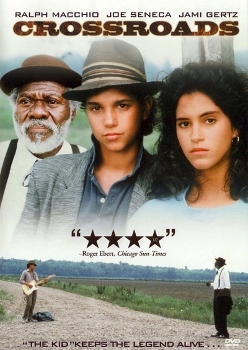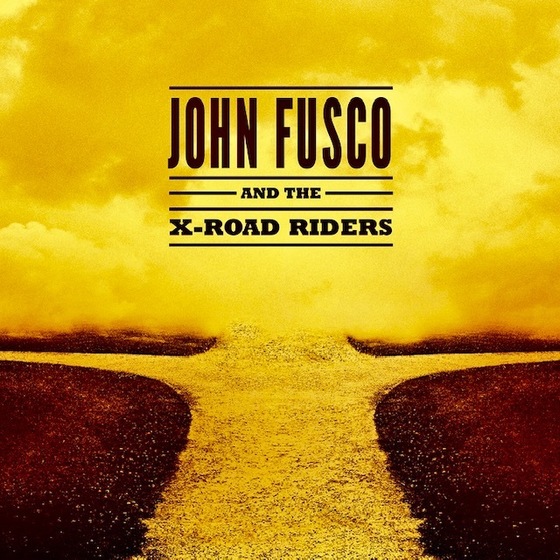
The first time New England native John Fusco came to this crossroads, as a young musician who had already had the honor of meeting and learning from blues masters such as Frank Frost and Sonny Terry, he ended up deciding to head back north to pursue another of his passions, filmwriting.
And though you could take the man out of the crossroads, you apparently couldn’t take the crossroads out of the man, with Fusco’s first screenplay in fact telling the tale of a young classically trained guitarist (played by Ralph Macchio) who ventures south with an old bluesman in search of a long-lost song from blues master Robert Johnson, who, legend has it, promised his soul to the devil during a visit to the crossroads in exchange for the ability to play better guitar.
From that 1986 Crossroads (which included Fusco’s old friends Frost and Terry among the musicians featured either on the screen or soundtrack, along with Otis Taylor, Arlen Roth, Terry Evans, Ry Cooder, and Steve Vai), Fusco went on to write other projects such as Young Guns, The Babe, Hidalgo, and the recent Netflix show Marco Polo, as well as the soon-to-be-released Kevin Costner/Woody Harrelson film The Highwaymen. After wrapping shooting for that latest movie in New Orleans in early 2018, Fusco decided to head once again for the crossroads of Mississippi, this time to visit with bluesman Cody Dickinson (North Mississippi Allstars, The Black Crowes), the son of late Memphis music producer Jim Dickinson, with whom Fusco worked on Crossroads along with the film’s music supervisor Cooder.
While the 2018 visit with the younger Dickinson wasn’t planned as anything more than a meet-up for old times’ sake, the producer in Dickinson ended up unable to resist capturing the magic that was happening as he and Fusco jammed in Dickinson’s Checkerboard Lounge studio, with Fusco eventually contributing vocals, Hammond B3, piano, organ bass and acoustic guitar and Dickinson, guitar, dobro, bass, piano, electric washboard, and drums; Risse Norman providing some strong backing vocs; and a few other friends adding harmonica and horns to create Fusco’s rootsy debut album under the name of John Fusco & The X-Road Riders (Checkerboard Lounge Records).

It’s pleasantly surprising how good this album from Fusco is, ranging from soulful, swaying tracks like “Hello, Highway”, “A Stone’s Throw” and “Can’t Have Your Cake”, to gruff, harder-edged numbers such as the opening “Rolling Thunder” and horn-blaring “Poutine”, to the album’s only cover song, a memorable closing take on Robert Johnson’s “Crossroad Blues” that features Dickinson’s brother Luther on slide guitar, gospelish backing vocals from Norman, and a middle verse from rapper Al Kapone. Also worth checking out are a shuffling “Drink Takes the Man” — the song that led Dickinson to jump up from his drums to hit the record button during the two musicians’ impromptu jam session — with its interesting transitions, a gritty, creeping “Boogie on the Bayou”, and the hit-the-road southern country anthem “Once I Pay This Truck Off”.
With Fusco’s husky, soulful vocals and deep, southern-sounding keyboards and Dickinson’s soaring guitar, the album has a loose, Allman-esque quality, with shades at times of ZZ Top, Lynyrd Skynyrd, Joe Cocker and others.
For Fusco, “this record is about going back to the crossroads but taking a different turn this time, taking the road I didn’t take.” And anyone who hears this album will be glad he did. While we’ve certainly enjoyed some of the projects Fusco has written for the screen over the past decades, this album just may be his best work yet.
